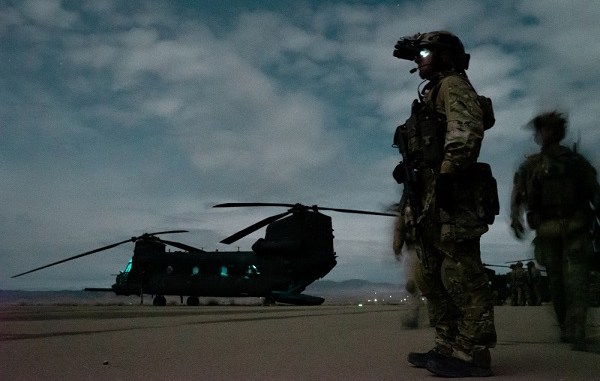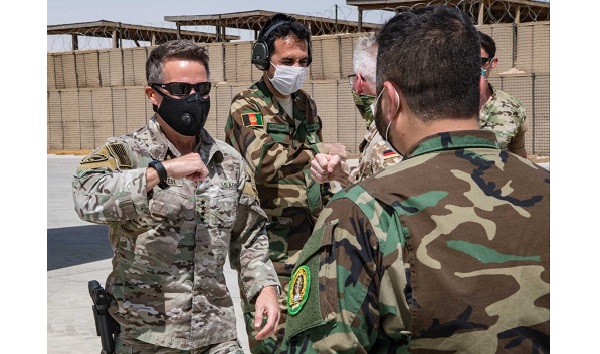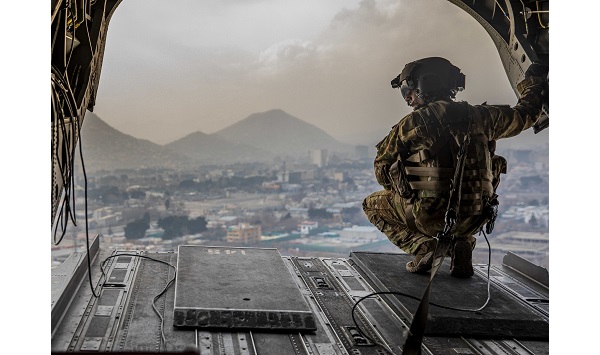
Summary
The peace agreement between the U.S. and the Taliban has set in motion the withdrawal of U.S. forces from Afghanistan and sets the stage for future talks between the Taliban and the government of Afghanistan. The release of prisoners from both sides has begun. The Afghan government is still in turmoil – suffering from the aftermath of the fall 2019 presidential election that retained President Ghani in office. The former CEO Abdullah is contesting the election. Violence in some parts of the country has diminished slightly – but the war continues. The Taliban have yet to announce their ‘spring offensive’ but that doesn’t mean they are not conducting attacks against the ANDSF and civilian targets. The ANDSF has averaged about 35 deaths a day.
Security
Civilian Deaths. The United Nations Assistance Mission in Afghanistan (UNAMA) has released its quarterly report on civilian casualties for Jan – Mar 2020. There were 533 civilian deaths and 760 injuries. Most of the casualties were attributed to the Taliban. View the 10-page PDF report.
WHO Update. The January 2020 Afghanistan Situation Report has been posted (26 April 2020) by the World Health Organization. It found that over 11,000 people were forced to flee their homes during January. Natural disasters took place that affected over 21,000 people. Health clinics continue to be targeted by the Taliban forcing many to close. Read the two-page report (PDF).
CIA Pulling Out? The U.S. is considering pulling back front-line CIA personnel from Afghanistan. There are thought to be several hundred CIA officers and contractors in-country. Many of them are advising elite CT militias. Presumably the CIA personnel would be pulled back into staff positions in Kabul or back to the states – and the militias turned over to the Afghan National Directorate of Security. The NDS is the Afghan intelligence service. See “U.S. floats pulling Afghan-based CIA”, Northwest Arkansas Democrat Gazette, April 18, 2020. (NYT’s article reposted).
ISKP – Still Present. In early April 2020 Afghan forces captured the latest head of the Islamic State Khorasan Province. But will that really matter? Read more in “The Islamic State Remains Alive in Afghanistan”, The Diplomat, April 27, 2020.
Helmand Province – A Static Situation. Andrew Quilty provides a detailed update on the fight for Helmand province. Read “Static War: Helmand after the US Marines’ return”, Afghanistan Analysts Network (AAN), April 23, 2020.
COVID-19 and Afghanistan

He wears his sidearm and mask for protection. He also appears to have
mastered the art of the ‘elbow bump’.
The normal activities of conducting a war during a pandemic get changed up a bit. Important meetings still take place but with face masks and some ‘elbow bumping’. The coronavirus pandemic threatens to engulf the nation in a massive health crisis. Herat province has seen the most cases – mostly Afghans returning from Iran which is experiencing severe problems with COVID-19. Herat is lacking protective equipment for health workers, a staggering economy, and possible future food shortages. Estimated deaths are at 40 (as of April 25th); but the toll is likely much higher. The Taliban have ignored calls for a ceasefire to fight the pandemic. Some military schools of the MoD have been closed and the students sent home.
Resolute Support Mission
U.S. to Pull Advisors? President Trump complains almost daily that U.S. troops are still in Afghanistan. He also says that they are at risk of exposure to the coronavirus pandemic. Read “Trump tells advisors U.S. should pull troops as Afghanistan COVID-19 outbreak looms”, NBC News, April 27, 2020.
2nd SFAB Reflects on Mission. During the 2018 to 2019 time frame the 2nd Security Force Assistance Brigade deployed to Iraq and Afghanistan. Now that they have completed their nine-month deployment they are pondering what they could have done better. Read “Fort Bragg’s newest brigade reflects on nine-month deployment as it transitions back to training cycle,“, The Fayetteville Observer, April 18, 2020.
4th SFAB Heads to Afghanistan. The 4th Security Force Assistance Brigade will be replacing the 3rd SFAB in the coming months. The Fort Carson, Colorado unit was recently stood up as an advisory unit. (Army.mil, Apr 23, 2020).
SFABs and Advising. An ‘operational advisor’ for the 4th SFAB has provided his perspective on the need to identify the right people to fill the ranks of the Security Force Assistance Brigades. Read his article entitled “Emotional Intelligence and the Modern Military Advisor”, NCO Journal, Army University Press, April 24, 2020.
U.S. Removes Contractors. Over 1,000 U.S. contractors are leaving Afghanistan due to the reduced troop levels and the threat of the COVID-19 pandemic. (Military.com, Apr 22, 2020).
NATO Statement on Afghanistan. The North Atlantic Council has issued a press release stressing the need for dialogue and restraint in violence in Afghanistan. (NATO, Apr 24, 2020).
Czech Republic Reduces Presence. The Czech unit responsible for providing force protection to the Bagram Air Field (BAF) has completed its mission in March and returned home in stages during April. The troops and material have been transported out of Afghanistan. The Czech soldiers had been patrolling the base since 2013. See “Czech Army ends patrol of Bagram Air Base in Afghanistan”, Expats.cz, April 17, 2020.
Some History – Marine FETs in Afghanistan. The role of the Marine Female Engagement Teams is presented in “10 years later, 2nd MEB-A remembers service in Afghanistan: FET’s break barriers, make history”, The Globe, April 23, 2020.

back of a CH-47 Chinook helicopter. Photo by SPC Jeffery Harris, March 3, 2020.
ANDSF
Gen Sadat Transferred. One of the more promising general officers in the Afghan National Defense and Security Forces has been transferred to be the General Director of the Afghan Public Protection Force (APPF). General Khoshal Sadat was previously serving as a Deputy Minister for the Ministry of Interior. This probably shouldn’t be viewed as a promotion. Sadat has been a long-time favorite of Western military leaders over the past few decades. (Khaam Press, Apr 11, 2020).
Peace Negotiations
Gen Miller Meets Taliban in Doha. The Resolute Support Mission commander met with the Taliban on April 10, 2020 in Doha, Qatar to discuss ways of reducing violence in Afghanistan. (Voice of America, Apr 11, 2020).
Betrayal by Khalilzad? Iqbal Dawari believes that the U.S. Special Representative for Afghanistan Reconciliation has sold out the Afghan government in his quest for a U.S. withdrawal agreement with the Taliban. Read more in “A Questionable Agreement: Has Khalilzad Betrayed Afghan People by Caving into Taliban Pressure?”, Eurasia Review, April 24, 2020.
Are the Taliban Serious? This article discusses and analyzes the beginnings off the peace process in Afghanistan. Read “Are the Taliban Serious about Peace Negotiations?”, Crisis Group, March 30, 2020. (PDF, 4 pages).
Pakistan is the Winner? Pakistan is jubilant over the U.S.-Taliban peace deal, but celebration may be premature. Using militant Islamists as strategic assets in the region became a formal strategy for Pakistan after 1971. Read more in “Did Pakistan Win the Afghanistan War?”, by Kunwar Khuldune Shahid, The Diplomat, March 31, 2020.
Governance
MoF Dismemberment? Moving key ministry functions from the Ministry of Finance to the president’s office is bad for governance, development, and the sustainability of peace. Read “Dismembering Afghanistan’s Ministry of Finance”, by William Byrd, United States Institute for Peace (USIP), March 31, 2020.
Draft Taliban Charter on Governance. A document has been revealed that consists of a series of rules intended as a guide for the potential future Taliban governance of Afghanistan. There are 149 articles for the future Islamic Emirate system of governance. See “Taliban Drafts ‘Charter’ for Future Govt: Document”, Tolo News, April 13, 2020.
Conflict Between Nomads and Settlers. A recent paper highlights the worsening conflict between Kuchi nomads and settlements that want to bar their transit and use of grazing areas. The Afghan government is unable to monitor and manage the conflict. A recent 4-page paper by the Afghanistan Research and Evaluation Unit explores this issue and provides some recommendations. See “Can the Afghan state intervene successfully in the conflict between nomads and settlers?”, AREU, March 15, 2020.
Rebuilding Governance. Eshaq Barna provides his perspective on the challenges of rebuilding the corrupt administration of Kabul. (The Khaama Press News Agency, April 16, 2020).
Afghan Prison Conditions. The new chief of Afghanistan’s jails provided details of the widespread problems in the country’s prisons. Read “Afghan Prison Chief Laments Conditions in Country’s Jails”, Gandhara Blog, April 22, 2020.
Commentary
Keep Advisors at the Ministries. Scott Buchanan, a former Senior Advisor to the Afghan National Security Council, argues that the U.S. needs to keep advisors at the Afghan security ministries. He believes it would be a mistake to remove the ministerial advisor presence as it would open prospects for Russian, Chinese, or Iranian influence instead. Read more in “The Case for Maintaining an Advisory Presence in Afghanistan”, Small Wars Journal, April 20, 2020.
LTG (Ret) Mills on Afghanistan. The former commander of NATO’s Regional Command Southwest in Afghanistan has expressed his thoughts on the current situation in Afghanistan. Read “Retired 3-Star: Hasty US Withdrawal Could Undo Hard-Won Gains in Afghanistan”, Military.com, April 24, 2020.
Political Legitimacy in Afghanistan and COIN Doctrine. Jonathan Bradley, a Civil Affairs officer and former advisor / trainer to the ANDSF, writes on the need to further develop the U.S. Army’s doctrinal concept of political legitimacy. He explores this topic within the context the shape, clear, hold, build, and transition campaign in Afghanistan. Read “Improving the Understanding of Political Legitimacy in COIN Doctrine”, Small Wars Journal, April 2020.
FOIA and Troop Count. Just Security filed a Freedom of Information Act (FOIA) request with the Department of Defense seeking U.S. troop numbers in Afghanistan, Iraq, and Syria. The organization seeks greater transparency in the U.S. involvement in overseas conflicts so it can hold officials accountable. (Just Security, April 22, 2020).
Clinton Stopped Assassination of OBL. In a new Showtime documentary (see below) intelligence officials say that the wars in Afghanistan and Iraq need not have happened. They reason that if the CIA had not been blocked from killing Osama bin Laden by then-President Clinton that the world would be much different today. Read “CIA Agents Reveal How Bill Clinton Stopped Them From Killing bin Laden and Preventing 9/11”, Daily Beast, April 20, 2020.
Reports and Books
A to Z Guide by AREU. The Afghanistan Research and Evaluation Unit has published its annual A to Z Guide to Assistance in Afghanistan 2020. This 236-page document is the fourteenth edition. It is an important document that can be used by domestic actors and the international community towards efforts in the development of Afghanistan.
https://areu.org.af/publication/the-areu-a-z-guide-2020/
UNAMA Report to UN. Read a transcript of a briefing to the UN Security Council by UNAMA. (United Nations, Mar 31, 2020).
Videos, Podcasts, and Movies
Documentary – The Longest War. This new documentary (April 2020) presents the human stories and drama behind America’s involvement in Afghanistan. First-hand witnesses – ranging from U.S. intelligence operatives, to soldiers and their families, Afghan officials, journalists, top government and military officials – bring their experiences to life through emotional interviews.
https://www.sho.com/titles/3479661/the-longest-war
Video – Life under Taliban rule in Afghanistan’s Kunar province. Following the government’s ouster of the Islamic State (IS) from Afghanistan’s eastern Kunar province, the Taliban have taken control. (Deutsche Welle, April 14, 2020, 4 mins.)
https://www.dw.com/en/life-under-taliban-rule-in-afghanistans-kunar-province/av-53115121
Podcast – Colonel Joseph Felter: Afghanistan Withdrawal. The February 2020 announcement of a potential US withdrawal from Afghanistan in 2021 raises the question of the legacy of America’s military involvement in that region – a presence dating back to the immediate aftermath of the 9/11 attacks. Col. Joe Felter, a Hoover Institution research fellow and Iraq and Afghanistan counterinsurgency veteran, reflects on the lessons learned and what comes next in South and Southeast Asia. Felter is a Special Forces officer and served as the commander of the Counterinsurgency Advisory and Assistance Team (CAAT) in Afghanistan.
(Hoover Institution, Apr 23, 2020, 45 mins)
https://www.hoover.org/research/area-45-colonel-joseph-felter-afghanistan-withdrawal
Podcast – One Day in Panjwai. Maj. Brian Kitching, a U.S. Army officer, describes a story of a long firefight from a 2012 deployment in southern Afghanistan’s Kandahar Province. The Spear, April 10, 2020. Modern War Institute at West Point.
https://mwi.usma.edu/podcast-spear-one-day-panjwai/
**********
Top Photo: U.S. special operations service members conduct combat operations in support of Operation Resolute Support in Southeast Afghanistan. RS is a NATO-led mission to train, advise, and assist the Afghan National Defense and Security Forces and institutions. (U.S. Army photo by Sgt. Jaerett Engeseth, 75th Ranger Regiment, 2019)